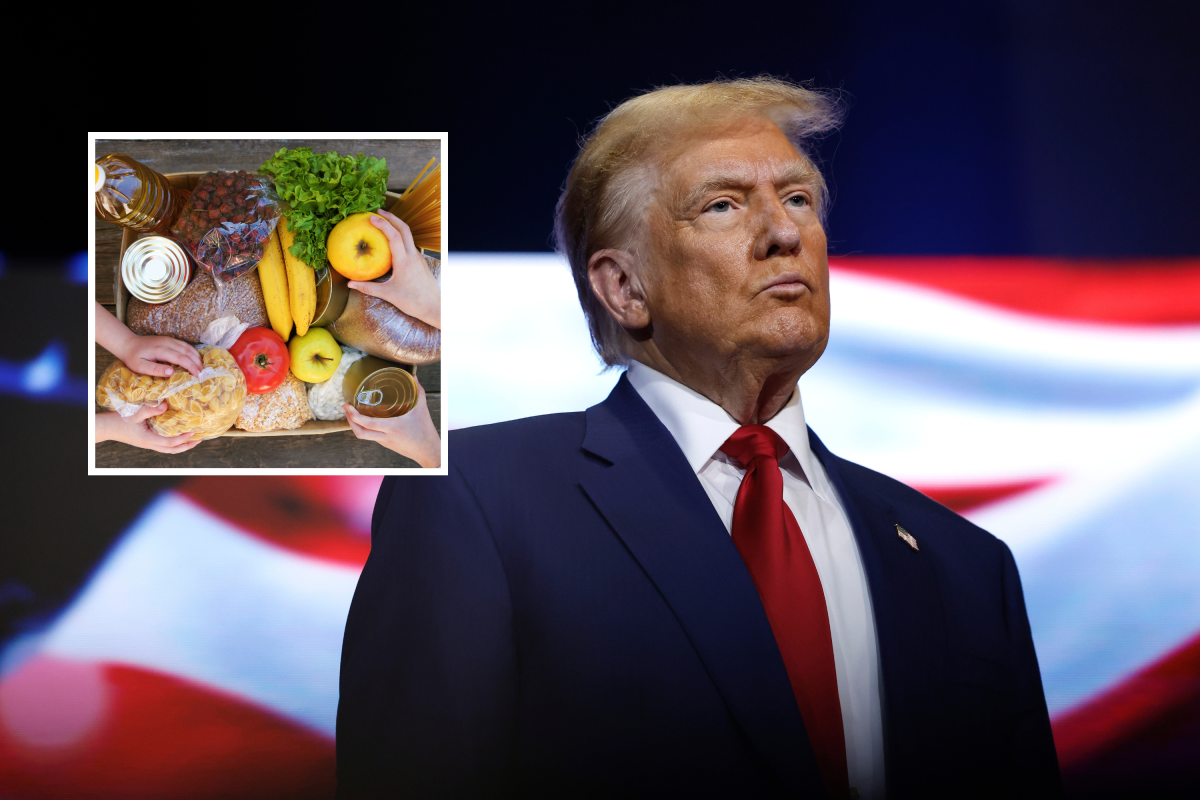The U.S. presidential election is only hours away, and its outcome could have a huge impact on the country’s food system, from the prices of groceries to the nutritiousness of American diets.
Professor Shonil Bhagwat, of The Open University’s environment and development faculty, in the U.K., told Newsweek that voters should “absolutely and in no uncertain terms” seriously consider how the next president could change the U.S. food system.
“Food is so mundane, and freely and cheaply available, that we tend to take it for granted, but access to and availability of healthy and nutritious—as opposed to cheap—food is absolutely vital for a well-functioning society,” he said. “If a country fails to get its food system right, that has a serious knock-on effect on the health of its people—prevalence of non-communicable disease, such as cardiovascular disease, type 2 diabetes, cancer, dementia, etc.—and of its environment.”
Donald Trump’s plans for the food system, as told to Newsweek by the campaign’s press office, involve bringing down food prices by lowering inflation, “slashing wasteful government spending,” cutting regulations, using more American oil and gas and focusing on geopolitical stability.

Donald Trump with an image of a food donation box overlayed. Access to nutritious food could become more difficult for the nation’s most vulnerable after the election, with the Trump campaign promising to cut regulation.
Anna Moneymaker / Staff / Mukhina1/Getty Images / Canva
Project 2025’s 900-page policy document, titled: “Mandate for Leadership: The Conservative Promise,” may not be formally associated with the Trump campaign, but it could provide an insight into what this deregulation could entail.
The document’s agricultural section focuses on removing the obstacles of “unnecessary government intervention” and enabling American farmers to “continue to flourish, producing plentiful safe, nutritious, and affordable food.”
It says that the U.S. Department of Agriculture should “play a limited role” and should not prioritize “ancillary issues, such as environmental issues, ahead of agricultural production.”
It suggests defunding, reforming and repealing programs and legislation that have allowed the USDA’s role to expand, such as those involved in farmers’ subsidies, food stamps, free school meals and other nutritional programs.
Bhagwat said that if these policies were enacted: “U.S. food assistance programs…[would] all be diluted, if not demolished. This would mean that some of the most vulnerable people from low-income groups—including women, infants and children—would struggle to access healthy and nutritious diets.”
Another significant portion of Project 2025’s food policy suggestions is to do with scrapping or reforming national dietary guidelines.
Bhagwat said this would mean there would be “no reliable yardstick to measure what food is healthy and nutritious, and what is not.”
However, the Mandate for Leadership said that current dietary guidelines were too politicized, based on questionable recommendations, and swayed by environmental agendas rather than human health.
“There is no shortage of private sector dietary advice for the public, and nutrition and dietary choices are best left to individuals to address their personal needs,” Daren Bakst of the Heritage Foundation wrote.
Further, Bhagwat said that the deregulation of the food industry, as described by Project 2025, would mean “the unregulated flow of ultra-processed food” dominating the American food supply, posing “further difficulties for vulnerable people to access healthy and nutritious food.”
In contrast, Kamala Harris’ policy book says she would create a more resilient, diverse and competitive food sector by supporting smaller farms and suppliers, and taking action against exploitation by big food corporations.
The Harris campaign alleges that, under Trump’s agenda, “prices for a typical American family would soar by nearly $4,000 annually,” largely due to tariffs on imported goods.
Taylor Rogers, a Republican spokesperson, warned Newsweek on behalf of the Trump campaign of Harris’ “dangerously liberal economic agenda.”
“From cereal to baked good, chicken and beef to eggs and milk, Americans are paying the price of Kamala’s failed policies just to put food on the table for their families,” said Rogers. “Kamala Harris has allowed China to buy up our farmland, and if she is president, she will allow the same Communist China to take over our food supply.
“President Trump will once again cut taxes and unleash American energy to lower prices on groceries and other goods when we send him back to the White House.”
Do you have a tip on a food story that Newsweek should be covering? Is there a nutrition concern that’s worrying you? Let us know via [email protected]. We can ask experts for advice, and your story could be featured in Newsweek.
